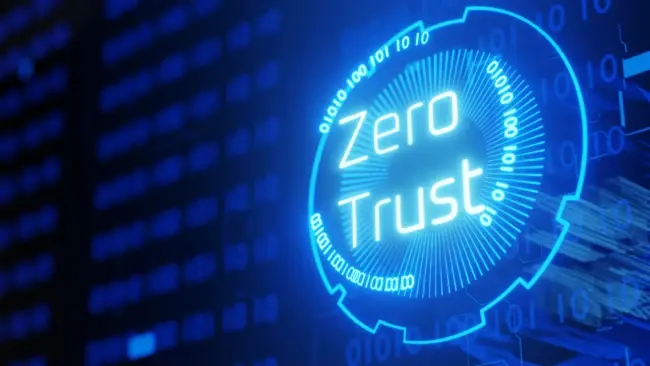As we enter 2023, cybersecurity continues to be a critical concern for businesses across industries. With the increasing frequency and sophistication of cyber threats, it's essential for companies to adopt a Zero Trust security model that assumes no trust in any user or device, both inside and outside the network perimeter.
To effectively implement Zero Trust, it's crucial to partner with the right vendors who provide robust solutions to address specific security challenges. In this blog, we'll highlight some of the Zero Trust vendors you need to know for your cybersecurity strategy in 2023.
-

Palo Alto Networks
Palo Alto Networks is a leading cybersecurity company that offers a comprehensive suite of Zero Trust solutions. Its flagship product, the Palo Alto Networks Security Operating Platform, provides a unified approach to security that includes network, cloud, and endpoint security. The platform incorporates machine learning and behavioral analytics to provide visibility into all network activity and enable fast threat detection and response.
Palo Alto Networks also offers Prisma Access, a secure access service edge (SASE) solution that provides Zero Trust network access to applications and resources from any location. With Prisma Access, organizations can enforce consistent security policies across all users, devices, and applications, reducing the attack surface and enabling secure access to cloud and data center resources.
-
Cisco Systems
Cisco Systems is a leading provider of networking and cybersecurity solutions, offering a range of products and services to enable Zero Trust security. Its Zero Trust approach focuses on securing all users, devices, and applications across the network, regardless of location or access method.
Cisco's Zero Trust solutions include its Identity Services Engine (ISE), which provides comprehensive network access control and policy enforcement, and Duo Security, a multi-factor authentication (MFA) solution that ensures only authorized users can access critical applications and data. Cisco also offers its Zero Trust Blueprint, a comprehensive guide to implementing a Zero Trust architecture that aligns with industry best practices.
-
Microsoft
As a leading provider of cloud-based services, Microsoft has a strong focus on Zero Trust security. Its approach is built around the Microsoft Azure Active Directory (AAD), which provides centralized identity and access management for all users and devices in the organization. AAD includes features like conditional access policies, multi-factor authentication, and risk-based access controls to provide a Zero Trust approach to identity and access management.
Microsoft also offers its Microsoft Defender suite of endpoint security solutions, which provides advanced threat detection and response capabilities. With Microsoft Defender, organizations can quickly identify and remediate threats across all endpoints, including Windows, macOS, Linux, and mobile devices.
-
CrowdStrike
CrowdStrike is a cybersecurity company that provides endpoint security solutions to enable Zero Trust security. Its flagship product, the CrowdStrike Falcon platform, uses AI-powered threat detection and response to provide comprehensive endpoint protection. Falcon provides real-time visibility into all endpoint activity and can quickly identify and respond to threats, including ransomware and advanced persistent threats (APTs).
CrowdStrike also offers a Zero Trust security posture assessment service that evaluates an organization's existing security posture and provides recommendations for strengthening Zero Trust controls. This service can help organizations identify potential security gaps and prioritize security investments to improve overall security posture.
-
Okta
Okta is a leading provider of identity and access management solutions that enable Zero Trust security. Its Identity Cloud platform provides a centralized approach to identity and access management, including multi-factor authentication, adaptive access controls, and centralized policy management.
Okta also offers a Zero Trust Network Access (ZTNA) solution that provides secure access to applications and resources from any location. With ZTNA, organizations can enforce granular access policies based on user identity and device posture, reducing the attack surface and ensuring that only authorized users can access critical resources.
Conclusion
As cyber threats continue to evolve and become more sophisticated, it's critical for organizations to adopt a Zero Trust security model to protect against these threats. By assuming no trust in any user or device, both inside and outside the network perimeter, Zero Trust security provides a comprehensive approach to security that can help organizations reduce their attack surface and minimize the risk of a breach.
Partnering with the right vendors is essential for effectively implementing a Zero Trust security model. The vendors highlighted in this blog - Palo Alto Networks, Cisco Systems, Microsoft, CrowdStrike, and Okta - provide a range of solutions to address specific security challenges and enable organizations to adopt a Zero Trust approach to security.







Comments ( 0 )